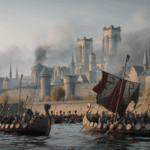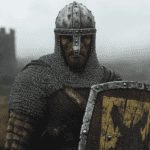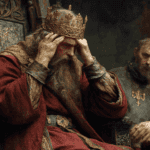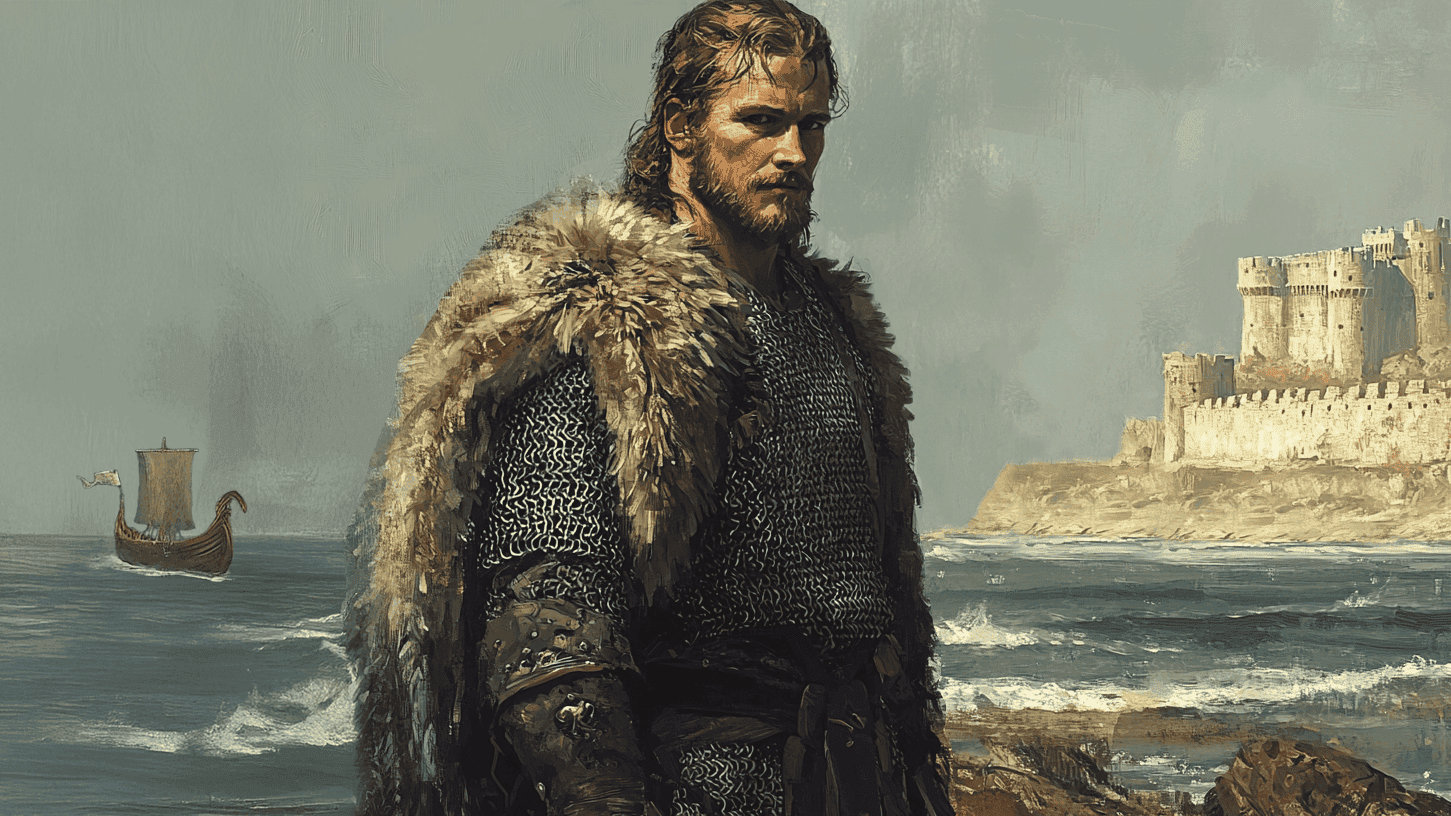
In the year 911 CE, a pivotal event occurred that would shape the course of European history: the granting of Normandy to the Viking leader Rollo by the French king Charles the Simple. This momentous agreement not only marked the beginning of Normandy as a distinct region but also set in motion a chain of events that would ultimately lead to the Norman Conquest of England and beyond.
The Rise of Rollo
Rollo, also known as Hrolf or Robert, was a formidable Viking chieftain who emerged as a prominent figure in the late 9th and early 10th centuries. Born around 860 CE, Rollo’s early life is shrouded in mystery and legend, although he was probably of Norwegian origin. Regardless of his exact origins, Rollo gained notoriety as a skilled warrior and leader among the Norse raiders who had been terrorizing the coasts of Western Europe for decades.
By the late 9th century, Rollo had established himself as a force to be reckoned with along the Seine River in France. His reputation grew as he led successful raids and sieges, including a notable 13-month siege of Paris, which nearly brought the city to its knees. Rollo’s military prowess and strategic acumen made him stand out among the Viking leaders of his time.
The Siege of Chartres and Its Aftermath
In 911 CE, Rollo launched an ambitious campaign against the heart of West Francia. After failing to capture Paris, Rollo turned his attention to Chartres, hoping to breach its fortified walls. The siege lasted for several months, with Rollo’s forces isolating the town and burning the surrounding areas.
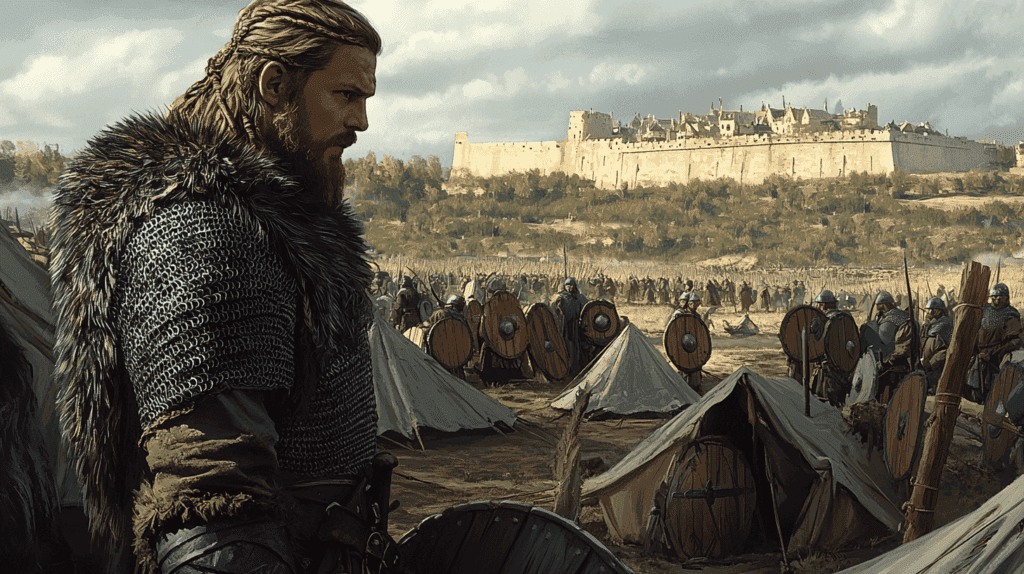
On July 20, 911, a Frankish relief army arrived to confront the Vikings. A fierce battle ensued, with the Bishop of Chartres leading a counter-attack brandishing religious relics. By nightfall, Rollo and his men were trapped on a hill north of the city, suffering heavy losses.
This defeat did not diminish Rollo’s standing among his peers, while King Charles the Simple recognised that Northern France would never be free of Viking raiders so he offered Rollo a diplomatic solution.
The Treaty of Saint-Clair-sur-Epte
In the aftermath of the Chartres campaign, negotiations began between Rollo and Charles the Simple. These talks culminated in the Treaty of Saint-Clair-sur-Epte, a landmark agreement that would have far-reaching consequences for both parties.
The treaty’s terms were both pragmatic and visionary. Charles agreed to grant Rollo and his followers a significant tract of land in northwestern France, stretching from the River Epte to the sea. This territory, which included the city of Rouen, would form the core of what would become known as Normandy. In exchange, Rollo pledged to do three things:
- End his brigandage and raids on Frankish territory
- Swear allegiance to Charles as his vassal
- Convert to Christianity and defend the Seine estuary against other Viking raiders
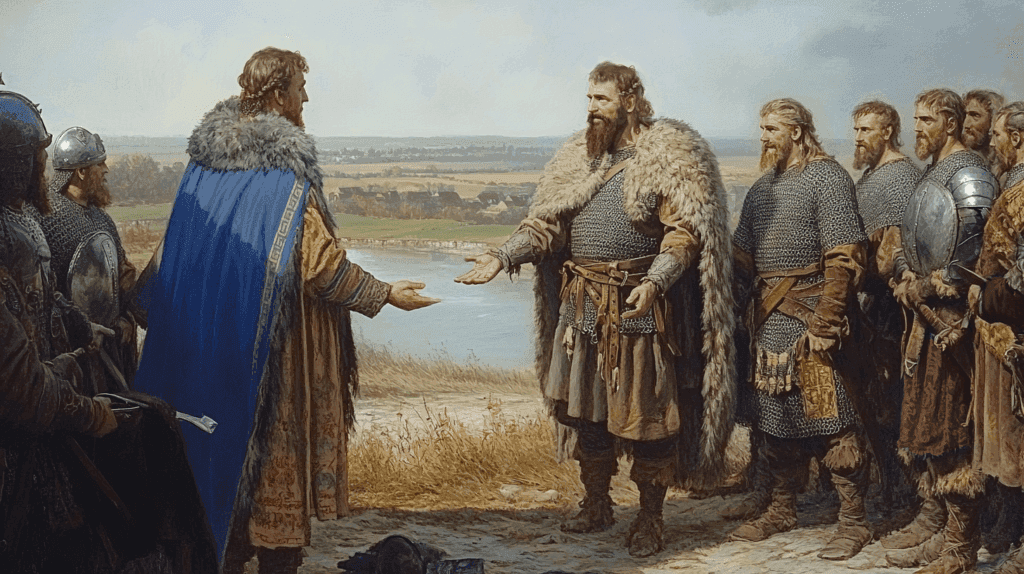
For Charles, this agreement offered a clever solution to the persistent Viking problem. By granting Rollo this frequently-attacked coastal frontier, he effectively created a buffer state that would spare the Franks from having to deal with future invaders. It allowed Charles to focus on internal matters and the improvement of his kingdom, which had been weakened by extended civil strife.
For Rollo, the treaty represented a significant upgrade from his status as a roving Viking chieftain. He would now become the Count of Rouen, with the potential to expand his territory and establish a lasting legacy.
The Ceremony and Its Colorful Aftermath
The formal ceremony to seal the treaty was a blend of solemnity and unexpected humor. Rollo was required to place his hands in those of Charles, symbolizing his new role as a vassal. As part of the agreement, Charles offered Rollo his daughter’s hand in marriage, further cementing the alliance.
However, when the bishops present suggested that Rollo should kiss the king’s foot as a sign of submission, things took an amusing turn. Rollo, a proud Viking warrior, balked at this humiliating gesture. After some negotiation, it was agreed that one of Rollo’s men would perform the act in his stead.
The chosen Viking, however, had his own ideas about how to carry out this task. Instead of bending down, he lifted the king’s foot to his mouth, causing Charles to topple over. This incident, which provoked laughter among the assembled court, highlighted the cultural clash between the Frankish and Norse traditions. It also demonstrated that while Rollo might have agreed to become a vassal, he and his men would not easily abandon their Viking pride.
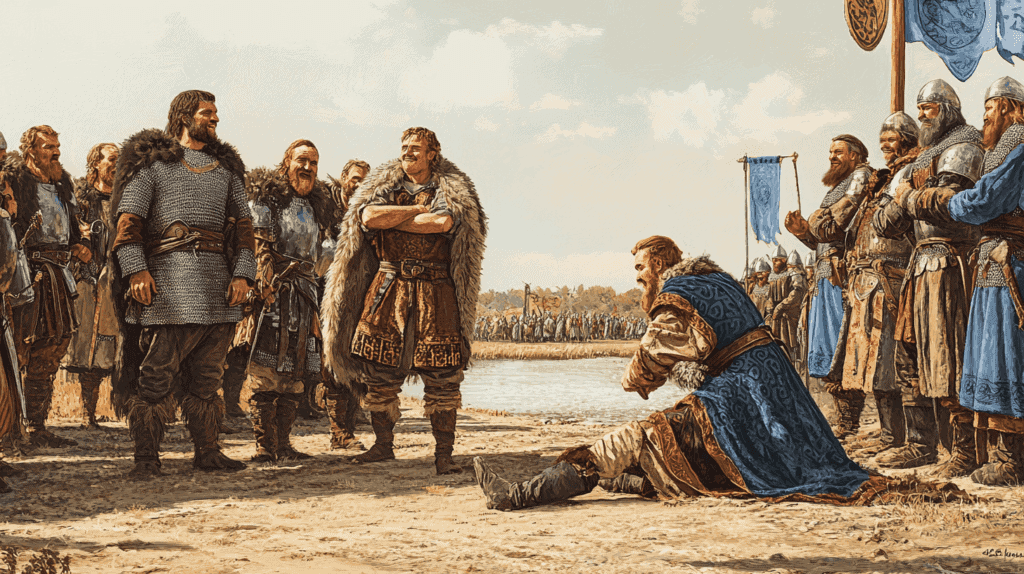
The Transformation of Rollo and Normandy
Following the treaty, Rollo underwent a remarkable transformation. He took the Christian name Robert upon his baptism and began the process of establishing a new form of governance in his granted territories. This marked the beginning of the Duchy of Normandy, though the title of Duke would not be formally used until later.
Rollo’s conversion to Christianity was more than just a political move. It represented a significant shift in the cultural identity of the Norse settlers in Normandy. By adopting the religion of the Franks, Rollo and his followers took the first step towards assimilation into the broader European Christian culture.
However, Rollo did not completely abandon his Viking ways. The agreement with Charles did not preclude him from raiding territories outside of the Frankish king’s jurisdiction. Rollo continued to expand his territory when opportunities arose, acting as both a Frankish count and a Viking chief.
Under Rollo’s leadership, Normandy began to develop its unique character. The Norse settlers, now known as Normans, blended their Viking heritage with Frankish culture and institutions. This fusion would create a dynamic and powerful society that would have a profound impact on European history in the centuries to come.
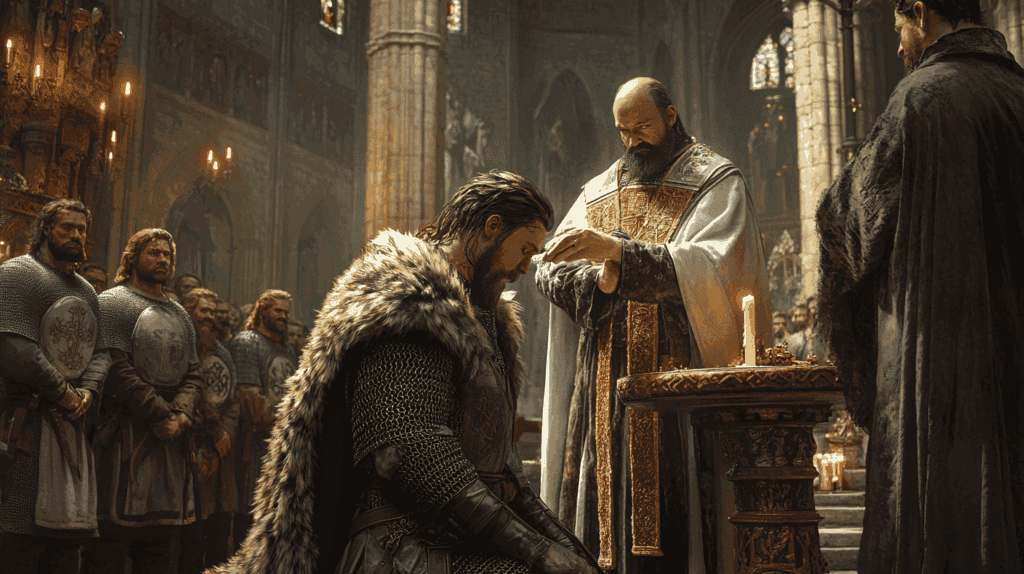
The Legacy of Rollo and the Treaty of 911
The significance of Rollo’s agreement with Charles the Simple in 911 CE cannot be overstated. It laid the foundation for the Duchy of Normandy, which would become one of the most powerful and influential regions in medieval Europe.
Rollo’s descendants, known as the House of Normandy, would go on to play crucial roles in European history. Perhaps the most famous of these was William the Conqueror, Rollo’s great-great-great-grandson, who would become Duke of Normandy in 1035 CE and King of England in 1066 CE following the Norman Conquest.
The Norman influence extended far beyond England. Norman adventurers would also conquer Sicily and establish the Kingdom of Sicily, as well as play significant roles in the Crusades and the establishment of the Principality of Antioch. The cultural and political impact of the Normans can still be felt in many parts of Europe today.

